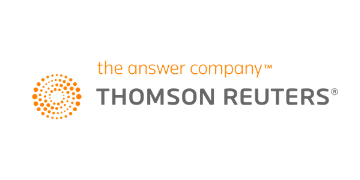The Important Link Between Anti-Corruption Compliance and Effective Training Programs

Julie DiMauro, Regulatory Intelligence Expert, Thomson Reuters, and Michael Volkov, CEO, The Volkov Law Group
We were honored to jointly present a Thomson Reuters-sponsored webinar focused on Top Anti-Corruption Compliance Risks recently; if you missed it, please find the replay here.
Global anti-corruption risks are increasing at the same time that global cooperation among prosecutors and law enforcement agencies are facilitating the detection and penalization of companies and individual bad actors that infringe anti-corruption regulations and laws.
Already this year, we have seen some significant enforcement actions involving global cooperation, including those involving Cognizant Technology, MTS Telesystems, and Fresenius Medical. Adding to these corporate enforcement efforts, the U.S. Department of Justice (DOJ) has continued to focus on individual criminal prosecutions.
No one can deny that Foreign Corrupt Practices Act (FCPA) enforcement remains at the top of every global company’s list of operating risks.
At the heart of anti-corruption risks, third-party intermediaries remain a substantial risk.

Even with the advent of new due diligence platforms, technologies, and automated solutions, companies are still working on ways to focus risk mitigation strategies with limited resources. We always hear about new Fintech solutions and artificial intelligence tools that promise rapid research and accurate results when conducting due diligence — but for most companies, third-party risk management is a continuing opportunity for improvement and success.
As more companies seek to implement appropriate strategies, the DOJ and the Securities and exchange Commission (SEC) continue to raise their expectations regarding effective third-party solutions.
Companies have to be mindful of these rising expectations and seek to implement effective strategies as quickly as possible, consistent with their respective risk profiles.
A basic requirement for effective anti-corruption compliance programs is training. But not just “basic” training, such as an annual, one-time presentation that quickly reviews anti-corruption compliance requirements.
To the contrary, the training world has evolved in response to creative and new strategies, improved content and focus, and the DOJ and SEC expectations concerning training programs.
The evolving state of anti-corruption training has focused on several important issues:
- Training content and delivery that is focused on distinct anti-corruption risks among corporate actors and locations;
- Improved training content to ensure audience interest and comprehension;
- Expansion of training requirements to third parties, given the need to mitigate significant corruption risks; and
- New and creative training strategies designed to improve knowledge, ensure questions are asked, and keep accurate records of training program participation and an ongoing measurement of performance.

These trends alone represent a sea-change in the world of anti-corruption training. No longer can companies rely on the one and done approach to conducting an annual or bi-annual anti-corruption compliance training program.
Tailoring anti-corruption content to the risk-management needs of particular companies is a critical trend that is designed to ensure that the opportunity to train specific actors, such as international business development and sales staff, is maximized by providing content that is relevant and includes discussion of likely situations to arise in their job functions.
To capture the imagination and interest of training audiences, companies are dedicating more resources to the training function, appointing global training managers responsible for overall training program management, and securing content that is engaging.
Corporate training professionals have long-recognized the need and benefits from training third-party representatives.
Given the significant risk of these business partners, companies that extend training programs to their vendors and business partners earn substantial benefits and build positive working relationships with these parties to ensure that they understand and conform to company expectations and culture requirements.
Finally, an effective training program has to ensure self-assessment, and seek employee input as to the relevance and quality of a training program. At the same time, companies have to document their training programs to ensure accountability among executives, managers and employees.
Corporate leaders, senior executives and ethics and compliance program leaders have to redouble their vigilance over their training programs, while building additional content, strategies, and benchmarking functionality.

Having such well-tailored, evolving, mandatory training modules is a highly effective way to demonstrate to regulators the business is serious about preventing and detecting FCPA violations and corrupt practices of all kinds, at every level of the organization.
Click here To find out more about Thomson Reuters Compliance Learning and the anti-bribery and anti-corruption online training courses.















